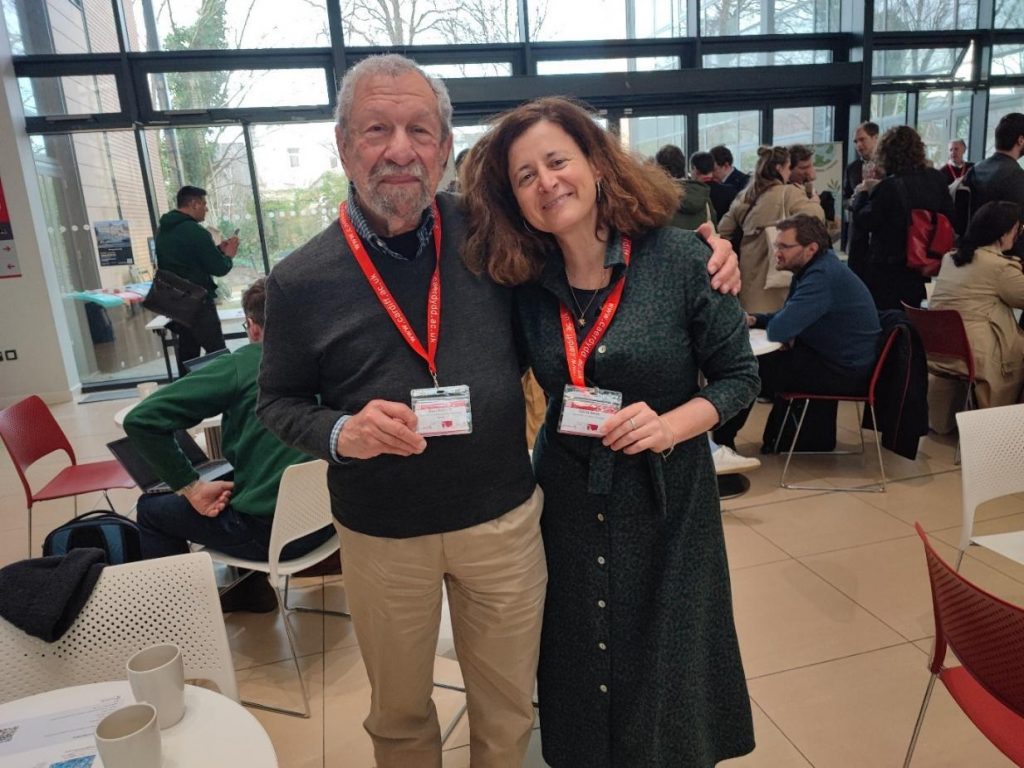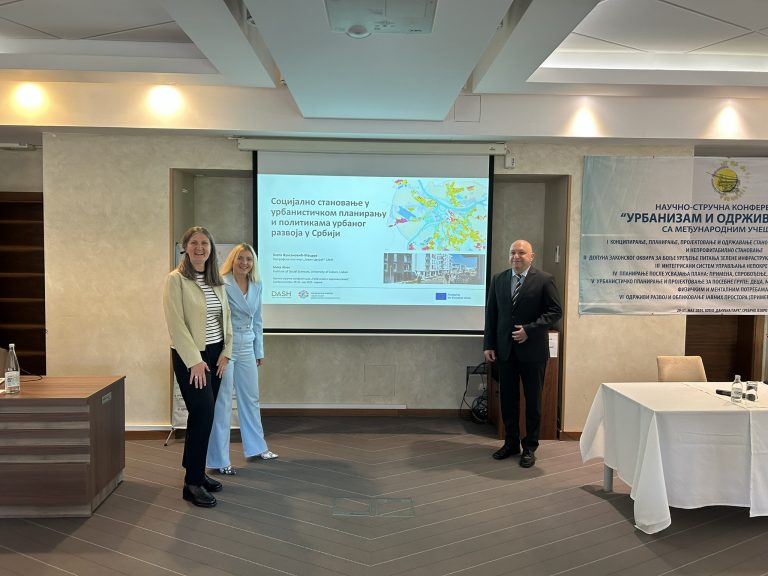By Sónia Alves
On 6 March 2024, Sónia Alves, on behalf of herself and Dulce Lopes (professor of Planning Law at the Faculty of Law of the University of Coimbra), presented the paper “Land policies for affordable housing – the case of Portugal” at the 19th annual conference of the International Academic Association on Planning, Law, and Property Rights (PLPR), 3-7 March 2025 in Cardiff (Wales, UK).
The conference, hosted by the School of Geography and Planning at Cardiff University, brought together experts from diverse countries, working on the intersection of a wide range of topics related to planning law, planning theory and land policies.
Of special interest – and emblematic of the growing importance of housing on the political and academic agenda – was the special track, organized by Josje Bouwmeester, Gabriela Debrunner and Jessica Verrheji, dedicated to land policies for affordable housing. Over the course of five sessions researchers working at the intersection of spatial planning and housing presented case studies from diverse geographies and regions.
The special track on land policies for affordable housing was structured according to several main themes: historical transformations, market inefficiencies, inclusion and segregation, multis-scalar governance and decommodification.
From different conceptual and methodological perspectives, case studies highlighted how governments at the national, regional and local levels are introducing new policies and rules, and activating existing ones, to tackle the current major unaffordability crisis.
A presentation from Switzerland, focusing on larger cities, explained how municipalities are using long-term ground leases that separate land ownership from building ownership to provide land for nonprofit cooperative housing, reducing reliance on for-profit investors, encouraging the development of below-market-rate rental housing, and allowing public agencies to maintain control while supporting development. The South African case showed that inclusionary zoning is symbolic and important in terms of both outcome and process, as the authors argued that policy should be aspirational and not just about day-to-day decisions. The importance of promoting non-profit and community-centered projects in high-priced land market environments was mentioned for different contexts.
Our focus and case study
While in other countries we have seen a legislative revolution to enforce affordable housing through inclusionary zoning, in Portugal, despite the recognition of the negative effects of segregation, governments have done little to promote the use of planning instruments to ensure social mix and inclusivity of housing tenures and social classes.
In Portugal, the residual percentage of social and/or non-profit housing within the housing stock, the lack of legal quotas for inclusionary zoning, and the rare use of pre-emption rights and compulsory purchase of land for non-market housing provision explains the importance of the creation of Municipal Housing Charters by the Basic Housing Law (Law 83/2019), approved by the Portuguese Parliament in 2019.
Municipal Housing Charters, described in the Housing Act (2019) as a strategic tool for municipal housing policy planning at the municipal level, provide a clear path for inclusionary zoning in municipalities with a declared housing need. This means that plans can make planning permission conditional on the provision of a proportion of affordable housing on site (or, exceptionally, off site). However, it remains to be seen how and whether this will happen in practice.
It is within this context that we outlined three overarching goals for our research, grounded in qualitative case studies of three Portuguese cities where CMH are being developed: Porto, Lisbon and Matosinhos:
– What regulatory frameworks have these municipalities put in place to ensure the provision of affordable housing? How ambitious are they in terms of addressing existing power imbalances, inequalities, etc.?
– Have municipalities set mandatory affordable housing targets through zoning or project-level planning negotiations, and on public or private land?
– What are the conditions or factors that explain differences and similarities in planning policies and practices?
Our research methodology combines document analysis of policy and planning instruments with qualitative interviews carried out with the local administration of in the three selected municipalities.
Initial findings suggest both commonalities and divergences in how the CMH are imagined, and in how planning instruments and actors are articulated to address the housing challenges. Although this seems to signal a new historical trajectory towards integrating planning and housing policy, its advancement and realization is contingent upon the ambition and leadership of public authorities and public sector institutions willing to question the status quo or at least established norms.


Sónia Alves with Alan Mallach – co-author of the book Inclusionary Housing in International Perspective: Affordable Housing, Social Inclusion and Land Value Recapture. Cambridge, MA: Lincoln Institute of Land Policy, published in 2010.

